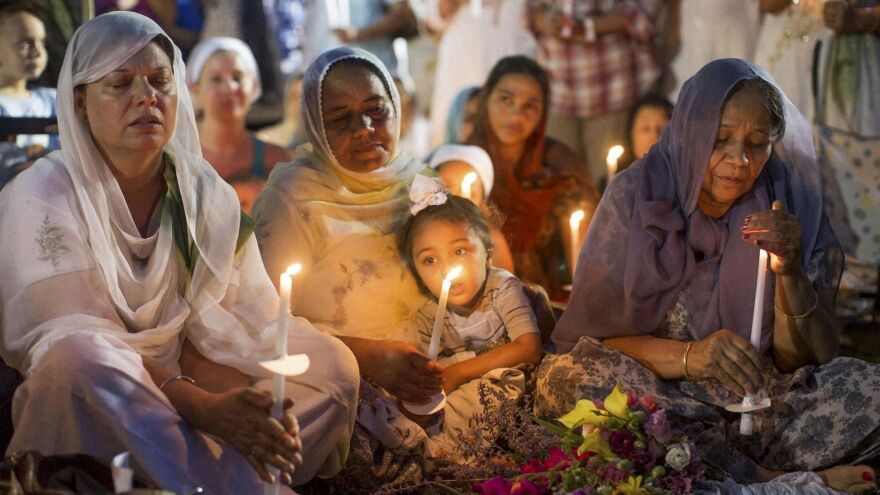Documentary filmmaker Patrice O’Neill has been working to prevent hate crimes for almost 20 years. The tools of her trade: films and community outreach. When her nonprofit The Working Group produced “Not in Our Town” for PBS in 1995, the response sparked a movement that continues to expand today.
Tonight at the Missouri History Museum the latest in the "Not in Our Town" film series will be screened and discussed. Called “Waking in Oak Creek,” it tells the story of the shooting at a Sikh Temple in Oak Creek, Wisconsin, and how the town responded to the tragedy.
“Our story is about that crime, one of the deadliest hate crimes in the past 50 years in our country, but mostly it’s about what the community did in the aftermath of this crime,” said O’Neill. “And so even though I think this is a very sad and scary story, it’s ultimately very uplifting because in the aftermath of hate we can see what we can do to prevent it.”
Preventing Hate Crimes
The key to preventing hate crimes is communication, something that the number of hate crimes reported to the FBI reveal needs work, said O’Neill. The Department of Justice estimates that many more hate crimes occur than are reported.
“There’s an incredible amount of dysfunction in those numbers,” she said. “There’s miscommunication between police and communities. There’s fear. There is a whole level of things that I think we can get to if we work at it. And that’s what 'Not in Our Town' is about, because hate crimes are sort of a spike in the everyday intolerance that occurs under the surface. So how do we get to that before hate turns to violence?”
O’Neill pointed to the "Not in Our Town" film “Light in the Darkness” as an example of how better communication and reporting of hate crimes could have prevented the murder of Marcela Lucero. Prior to his death, there had been a series of attacks on Latinos in the community
The Role Of Law Enforcement
Because reporting and prosecuting hate crimes is such an important part of preventing future crimes, the role of law enforcement is vital, said O’Neill. "Not in Our Town" is working with the Department of Justice to provide training from the best investigators.
In St. Louis, local police have had hate crime training, though the type of training differs from agency to agency, said Joseph Cichacki of the St. Louis Metropolitan Police Department. He is an investigator with the Intelligence Division and a member of the St. Louis FBI’s Joint Terrorism Task Force.
“The primary goal of the local law enforcement community has been not only defining what a hate crime is but also recognizing what a hate crime is in our community,” said Cichacki. “Getting out and reaching out to communities and working with them has been the initiative that has proven the most success.”
Outreach efforts from law enforcement such as Cichaki described are essential said O’Neill because it helps potentially vulnerable groups form relationships with police, making it more likely that they will feel comfortable reporting crimes.
But hate crimes are not just a matter for the law, added O’Neill. Just as important is the role of everyday citizens to speak out against intolerance.
Hate Crimes Starts As Bullying in Schools
“People I know are scarred for life about what happened to them as children, and we’re paying new attention to this now,” said O’Neill. “We can deal with bullying. But I think what we’ve learned even in these past few years is that there are all kinds of bullying programs and many of them are excellent … but when you walk away from that assembly, what are young people left with?”
“We need to get tools into the hands of young people so that they can lead each other so that they can learn to stand up for each other and address it themselves,” she said. That idea is the basis for Not in Our School, a platform for discussion, lesson plans and other resources on bullying.
Related Event
Panel discussion and screening of "Waking in Oak Creek"
7 p.m. Thursday, March 27, 2013
Lee Auditorium, Missouri History Museum
Waking in Oak Creek Website


